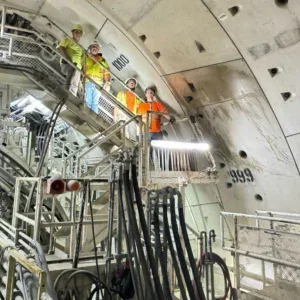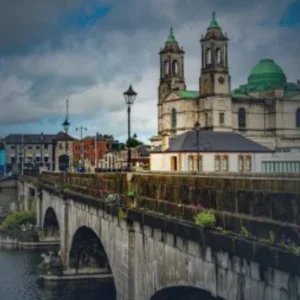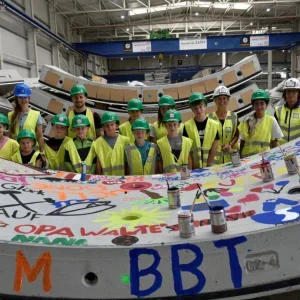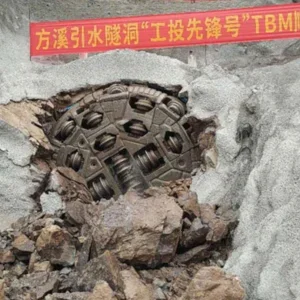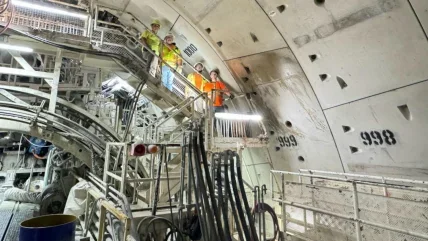
TBM Mary erected the milestone ring on July 22, leaving just 193 rings to go before breakthrough on the second of the twin-bore tunnels. Excavation is expected to be completed in the autumn.
In its latest project update, the Virginia Department of Transportation (VDOT) says TBM Mary is mining the uphill climb to the South Island, encountering fine grained soils, such as clay.
In June, the TBM set a record of 66 rings installed in one week, achieved in large part because of the work of Katherine the Slurry Treatment Plant. Katherine processes approximately 600 tons of soil per ring before the spoils are transferred to barges for disposal.
“Katherine was able to make quick work of the coarse-grained sandy soils found deep beneath the bay bottom. The top layers of the bay stretch Katherine and her limits to quickly process spoils, removing soil particles half the thickness of a human hair in size. These fine particles require more time to separate from the slurry and result in a more moderate pace as Mary reaches the end of her work,” the VDOT says.
TBM Mary’s steady pace means the second bore may be completed faster than the 51 weeks taken to completing the first tunnel.
On South Island, Hampton Roads Connector Partner crews have started concrete pours for the TBM cradle where the cutterhead and shield will rest in the receiving pit after breakthrough.
Island and trestle crews are also completing tie-ins to the mega-trestle connecting the tunnels to the Norfolk shoreline.
Inside the HRBT’s first bored tunnel, fit-out works continue. Since June, crews have completed placement of the tunnel’s roadway base along the entire length of the tunnel, allowing completion of the tube’s new egress structures and drainage systems.
More than 610m of pipe has been laid in the new tunnel to support the collection of water, as well as the pumping of water back to the surface for treatment. Water main and fire main installations are also progressing steadily. In addition, over 1,500m of L-wall and more than 610m of plenum wall have been constructed to support the tunnel’s emergency egress corridors.
On the new eastbound tunnel TBM Mary is currently boring, phase one of ballast placement is nearly 20% complete.



